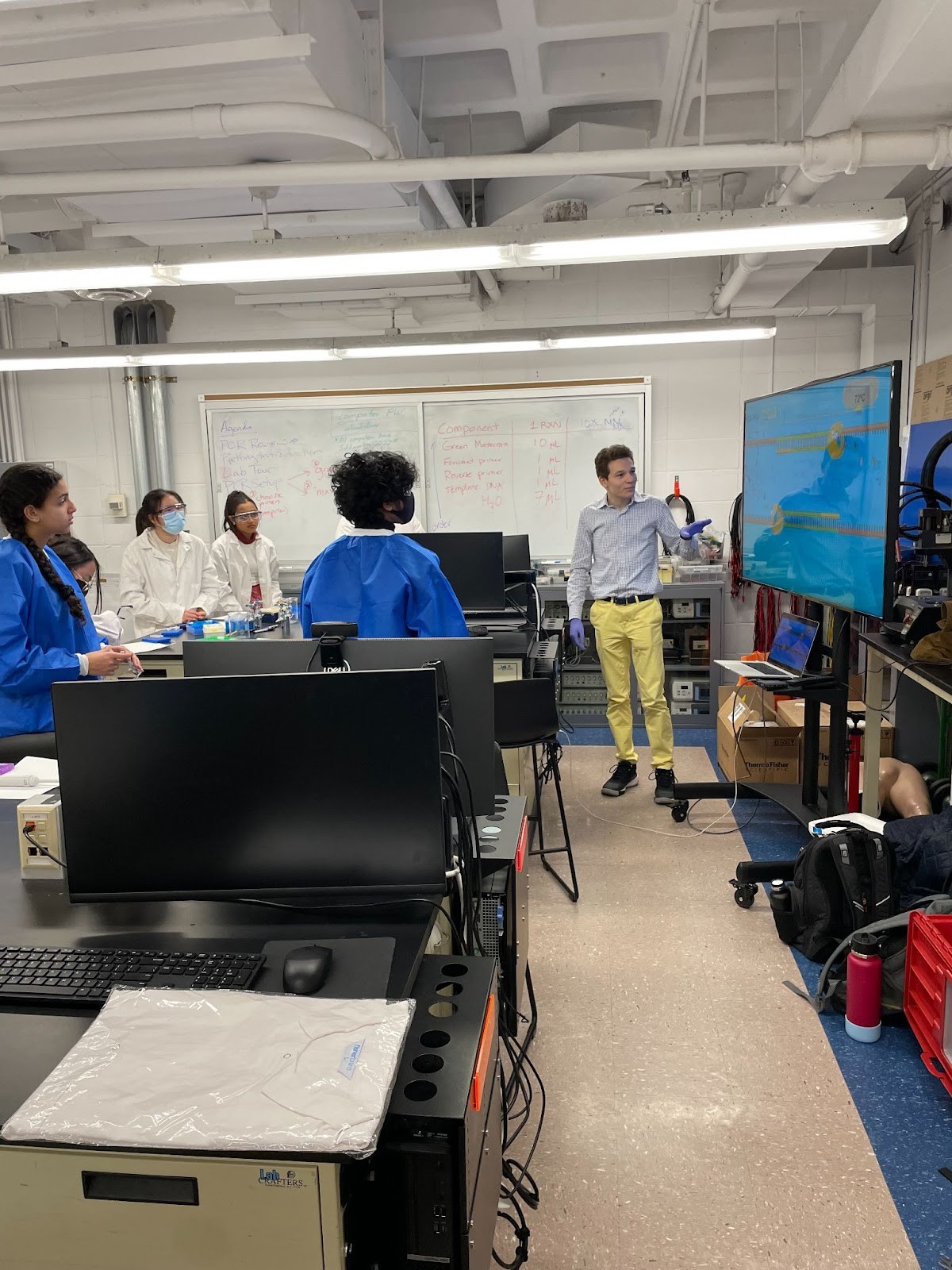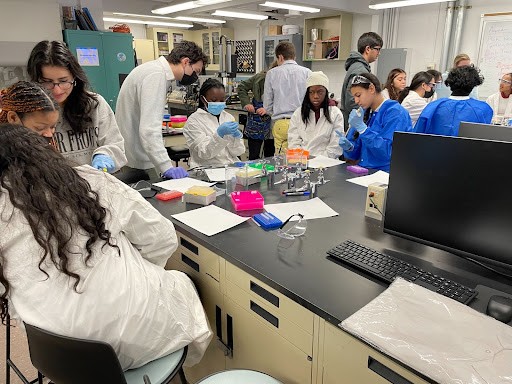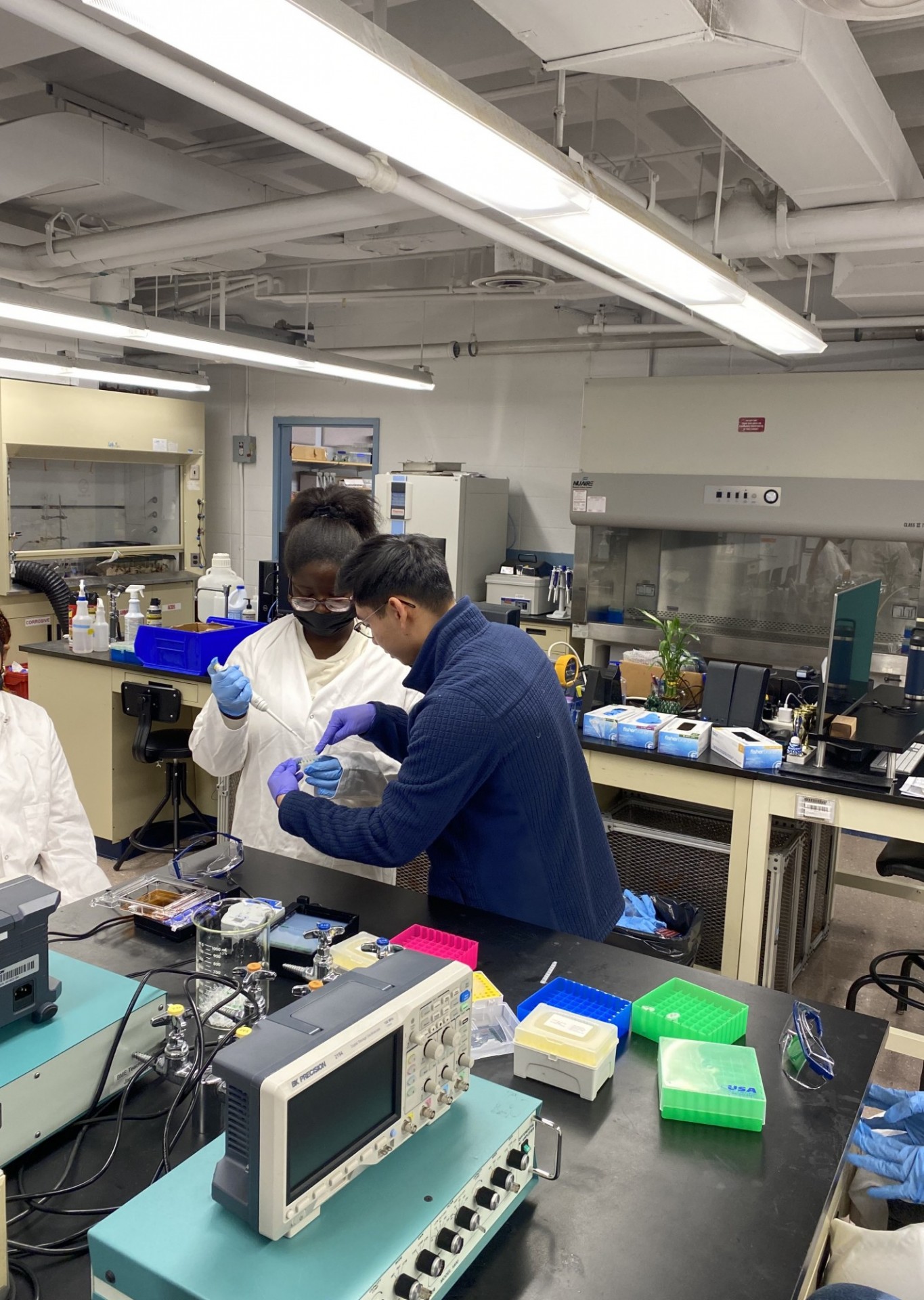A great breadth of academic courses are driven by a hermeneutical question. Cellular biology is no different. We can imagine this field as a tale of many cities. Each avenue and street holds thousands of buildings, all of which hold thousands of more workers, which all produce some quantifiable product. Picture our avenues and streets as dense collections of DNA, workers (us!) as messenger RNA, and our products as protein, and voila, we have a rough idea of how cells work!
Information flows from ‘unchanging’ DNA to these protein products. So crucial is this concept that it has been given its own epithet: the Central Dogma of Biology.
To more fully explore the way information flows from DNA to messenger RNA, this course combines lecture theory with select dry and wet lab experiences. Students thereby learn the theory behind core biological concepts and begin to understand how scientists make novel discoveries.
More specifically, the course is organized into eight one-and-a-half-hour sessions:
- Lecture: Introduction to DNA; Introduction to the Central Dogma
- Dry Lab: Selecting DNA to Amplify
- Lecture: Environmental Health and Safety; Lab Safety
- Wet Lab: Preparing Polymerase Chain Reactions to Amplify DNA
- Wet Lab: Visualizing DNA Bands with Gel Electrophoresis
- Wet Lab: Extracting DNA from Solid Gel Blocks
- Dry Lab: Analyzing DNA Sequencing Results
- Presentation: Students present their results!
The significance of these topics cannot be understated; they provide a unifying framework to understand diverse biological systems that range from complex, multicellular, and macroscopic human beings all the way to microbial communities that are invisible to the naked eye.
We desire to share this knowledge with the people who would benefit most; youth, the most powerful talent pipeline we have. We are dedicated to helping underserved students from Harlem and Washington Heights be inspired to become the next Gregor Mendel, the next Anthony Fauci, and/or, most importantly, fall in love with the process of scientific discovery.
Acknowledgements: The Double Discovery Center for providing funding, pedagogical support and students for this program. The Columbia Department of Biomedical Engineering for providing lab space and supervision. The Research Cluster on the Subject and Subjectivity for providing advisors.
The project was founded by Theo Nelson (CC ‘24) (DDC Instructor ; Fall 2022-Spring, 2023). Dennis Zhang (CC ‘24) is credited as a co-founder (DDC Instructor ; Fall 2022-Spring, 2023). We are fortunate to be joined by six undergraduate volunteers for the Spring, 2023 semester: Sophia Sorid, Julia Rocha, Albert Grass, Neil Bajaj, Madisyn Pilla, Nicholas Djedjos; and one graduate student volunteer: Timothy Chang.
Written by Nicholas Djedjos


